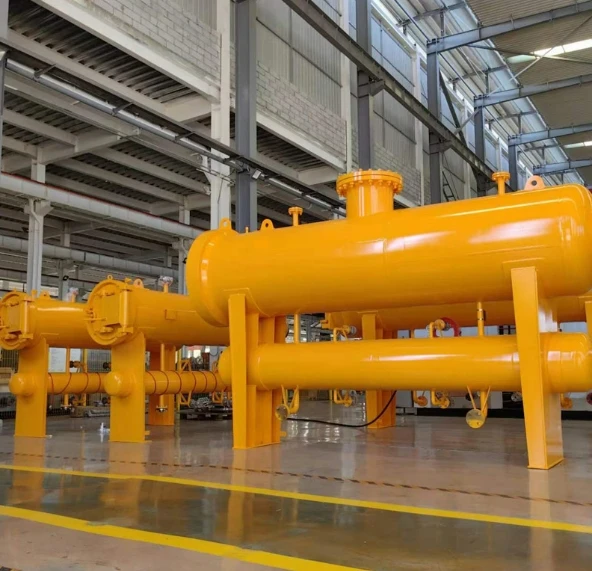
Dec . 10, 2024 10:08
Back to list
filter separator
Understanding Filter Separator The Key to Efficient Fluid Management
In the realm of industrial processes, effective fluid management is vital for ensuring the longevity and efficiency of machinery. One often overlooked component of this process is the filter separator. This device plays a crucial role in separating particles and contaminants from liquids and gases, thereby enhancing the quality of the produced fluid and protecting the downstream equipment from potential damage.
What is a Filter Separator?
A filter separator is an essential device used mainly in the oil and gas industry, as well as in various manufacturing processes. Its primary function is to remove solid particles, liquids, and gases from a mixture, ensuring that the final output is as pure as possible. The separator uses a combination of filtration and separation techniques to achieve this goal, making it highly effective in maintaining the integrity of the fluid being processed.
How Does It Work?
The working principle of a filter separator is relatively straightforward, yet highly efficient. The mixture enters the separator through an inlet, where it encounters a filter medium. This filter medium can be made of various materials depending on the application, including metal mesh, synthetic fibers, or activated carbon.
As the fluid passes through the filter, solid particles are captured, while the purified liquid or gas continues downstream. In many filter separator designs, gravity plays a significant role. The heavier particles settle at the bottom of the separator due to gravitational forces, forming a sludge that can be periodically removed.
In some advanced filter separators, additional technologies such as centrifugal separation or coalescing filtration are integrated. These technologies further enhance the separation efficiency by utilizing centrifugal forces to separate fluids of different densities or by promoting the aggregation of smaller droplets into larger ones for easier removal.
filter separator

Applications of Filter Separators
Filter separators are widely used across various industries. In the oil and gas sector, they are employed to cleanse crude oil by eliminating water and solid impurities before refining. This process not only improves the quality of the final product but also extends the life of equipment used in extraction and processing.
Additionally, filter separators are critical in the manufacturing industry where lubricants and coolants must remain free from contaminants to ensure the smooth operation of machinery. In power plants, they help in maintaining the quality of boiler feedwater by removing particulates, effectively contributing to energy efficiency.
Importance of Maintenance
While filter separators are designed to be robust and efficient, they require regular maintenance to ensure peak performance. Depending on the application and the level of contamination, the filter medium may need to be cleaned or replaced periodically. Neglecting maintenance can lead to reduced efficiency, potential equipment failure, or increased operational costs.
Moreover, operators should regularly inspect the entire separator system for any signs of wear or malfunction. Monitoring the flow rates, pressure drops, and other operational parameters can provide insights into the health of the filter separator, allowing for proactive measures to be taken.
Conclusion
In conclusion, filter separators are essential components in fluid management systems across various industries. By effectively removing contaminants and ensuring the purity of liquids and gases, they play a critical role in enhancing operational efficiency and extending the lifespan of equipment. Understanding the working principles and the importance of maintenance for these devices is crucial for any organization that relies on complex fluid processes. As industries continue to evolve and face new challenges, the role of filter separators will undoubtedly become even more significant in the quest for efficiency and sustainability.
Next:
Latest news
-
Safety Valve Spring-Loaded Design Overpressure ProtectionNewsJul.25,2025
-
Precision Voltage Regulator AC5 Accuracy Grade PerformanceNewsJul.25,2025
-
Natural Gas Pressure Regulating Skid Industrial Pipeline ApplicationsNewsJul.25,2025
-
Natural Gas Filter Stainless Steel Mesh Element DesignNewsJul.25,2025
-
Gas Pressure Regulator Valve Direct-Acting Spring-Loaded DesignNewsJul.25,2025
-
Decompression Equipment Multi-Stage Heat Exchange System DesignNewsJul.25,2025

